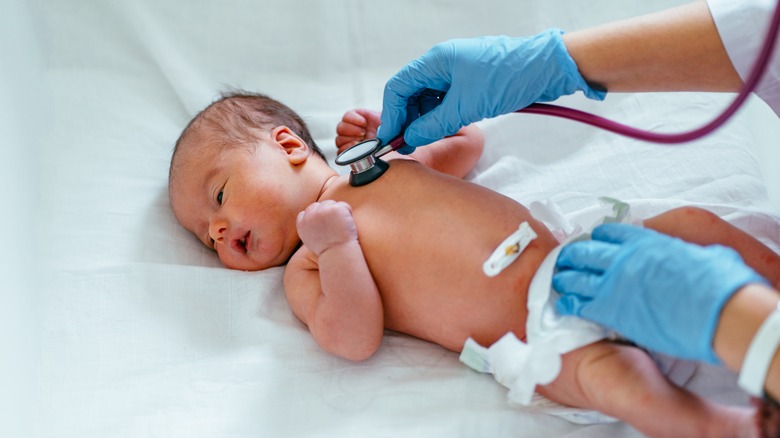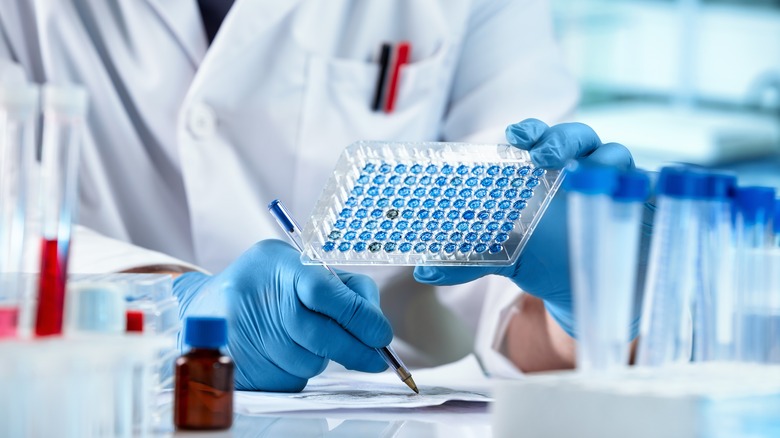What England's New Newborn Genome Project Might Mean For Pediatric Medicine
In the United Kingdom, a new research study is underway that aims to sequence the genomes of over 100,000 newborns, according to CNN. Genomics England, which is part of the UK Department of Health and Social Care, is leading the Newborn Genomes Programme, which would allow for early detection and diagnosis of treatable genetic conditions and, therefore, early treatment. This would also inform policymakers, who could use the results to make the genetic sequencing more routine. While the study is still being designed and tested, it's raising some ethical concerns in the medical community.
The study would screen approximately one in 12 newborn babies born in England (via CNN). Parents would have to consent to sequencing at their 20-week scan, and then confirm their decision when the baby is born. Proponents of the study say that being able to detect diseases early on would not only save lives, but also save money on healthcare costs, which could add up if a person gets sick later in life and has to go through multiple tests to try to figure out what's wrong.
What's the difference between a heel prick test and genetic testing?
Much like the heel prick test in the U.S., all newborns born in the U.K. are given a blood spot test at five days old, which tests for nine rare conditions like cystic fibrosis and sickle cell disease (via National Health Service). But some conditions, like congenital hypothyroidism, can have variants that the test doesn't catch (via CNN). Since congenital hypothyroidism can cause irreversible neurodevelopmental damage, it's important to get treatment within six months of birth, which is where genetic testing and early detection can be helpful.
But experts are raising ethical concerns with the study, though it received public support when it was launched in December 2022. Giving parents the news that their child may be predisposed to a genetic condition may cause unwarranted stress, since being predisposed to an illness is different than a diagnosis (via Science). Still, having this information and receiving prompt medical intervention if needed could change the trajectory of a child's life.
The ethical concerns of large-scale genetic testing
The sequencing project also raises questions of privacy and security, with some wondering who will have access to such sensitive data (per Science). Richard Scott, chief medical officer for Genomics England, assured skeptics that they're very aware of how complex these issues are, but insisted that having the ability to detect childhood diseases is critical.
Some insist that expanding the current screening to include more conditions, rather than gathering genetic data, could be just as useful for babies and families (via CNN). Others point out that screening ethnically diverse babies will be crucial, as the majority of diagnostic data currently available is from white people.
A similar project called the Guardian Study is underway in the U.S., launched in New York City September 2022 (per Science). A major difference in the studies is that the U.S. project gives parents the option of testing for 100 neurodevelopmental disorders that are incurable, raising further ethical concerns.



